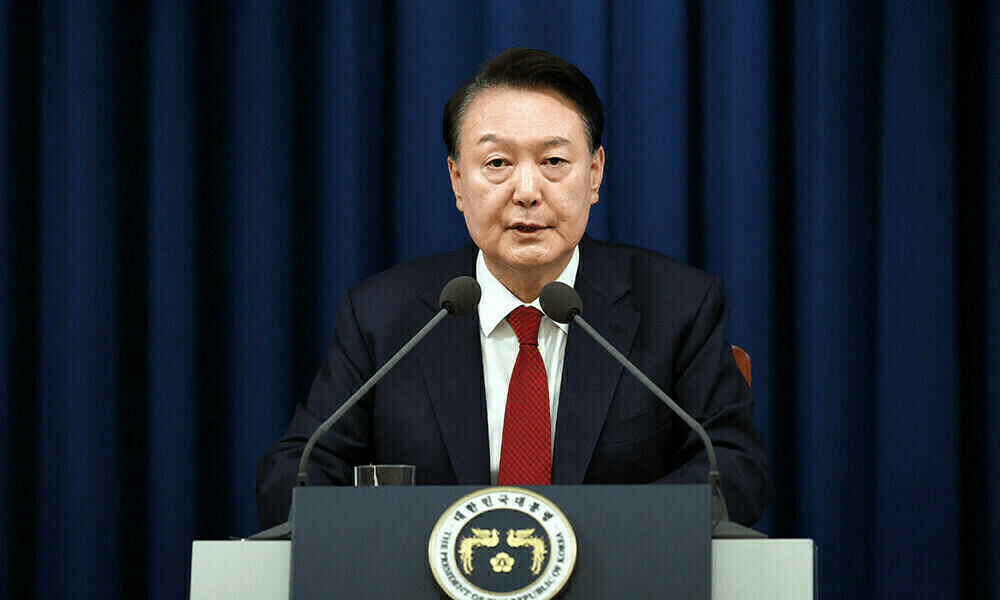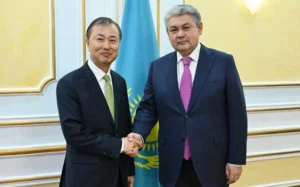South Korean Court Issues Detention Warrant for Impeached President Yoon

Seoul, The Gulf Observer: A Seoul court has issued a detention warrant for impeached President Yoon Suk Yeol in connection with his botched declaration of martial law on December 3, making him the first sitting South Korean president to face arrest. The Seoul Western District Court granted the request from the Corruption Investigation Office for High-ranking Officials (CIO), which had filed charges against Yoon for masterminding the failed martial law declaration, orchestrating an insurrection, and abusing his power, as reported by Yonhap.
In addition to the detention warrant, the court authorized a search of Yoon’s presidential residence in Yongsan, Seoul, as part of the ongoing investigation. The CIO had previously summoned Yoon three times for questioning, but he failed to appear each time, prompting the request for the detention warrant.
A CIO official confirmed that the detention warrant remains valid for one week, until next Monday, and Yoon may be held at the Seoul Detention Center in Uiwang, located south of Seoul, once detained. The CIO has not yet determined the timing of the detention but emphasized that executing the warrant is the primary objective.
Upon Yoon’s detention, the CIO will have 48 hours to decide whether to file for an arrest warrant to further detain him for questioning or to release him.
Yoon’s defense team immediately rejected the detention warrant, calling it “illegal and invalid.” They argue that it was issued by an investigative body without proper jurisdiction over the matter. The court, however, dismissed these claims, affirming the CIO’s authority to handle the case.
The court also dismissed Yoon’s arguments that he could not attend questioning due to insufficient security arrangements for his personal safety as the president.
Despite the issuance of the warrant, there are concerns about the Presidential Security Service’s ability to enforce it. The service has reportedly prevented investigators from entering the presidential compound and Yoon’s official residence to conduct searches, citing national security issues.
Although Yoon retains presidential immunity from criminal prosecution, this protection does not extend to charges of insurrection or treason. His defense team continues to argue that the CIO does not have the legal authority to investigate charges of insurrection, a matter traditionally handled by police.
The issue follows Yoon’s impeachment by the opposition-controlled National Assembly on December 14, after the martial law declaration was overturned by a parliamentary vote. The Constitutional Court is currently deliberating whether to remove Yoon from office or reinstate him, with a ruling expected within 180 days from the date of impeachment.
As the investigation continues, the political and legal landscape in South Korea remains tense, with significant implications for the country’s leadership and governance.


